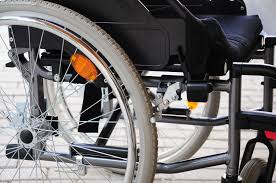Korean bishops urge a stop to the closure of facilities for the disabled
Caritas and the Social Commission of the Bishops' Conference released a statement today denouncing the fact that families are being forced to fend for themselves. Some disabled people have died after the facility where they lived was closed. President Yoon is accused of not living up to his campaign promises, but rather just changing the name of this "social experimentation".
Seoul (AsiaNews) – The closure of facilities is not promoting the well-being of disabled people. On the contrary, its results are unsuccessful, to the point that some people have died in a state of neglect, this according to the Catholic Church in Korea.
In a statement titled "God is love” released today by Caritas and the Commission for Social Affairs of the Bishops' Conference, the Catholic Church calls on President Yoon Suk-Yeol to keep his commitment to interrupt the "social experimentation" undertaken since November 2021.
The policy of "deinstitutionalisation" is grounded in the rejection of the idea of large residential facilities for the disabled built in the country in the 1970s and 1980s, which still house more than 20,000 people.
While this principle is laudable, there is great fear among the families of the disabled that this path - instead of being a real form of respect for the dignity of the most fragile people - will turn out to be an ideological recipe without adequate alternative paths with the most vulnerable being abandoned rather than assisted in the best possible way.
According to the Catholic Church, this is precisely what is happening in the pilot projects launched in the last three years.
The statement cites in particular a survey by the Seoul metropolitan government according to which only 700 people out of about 1,200 can confirm their residence. Of the 487 disabled people interviewed, only 281 were at their home, while 24 were dead.
“For the past three years, listening to the silent cries of suffering and even the loss of life” due to this policy, the Korea’s Catholic Church “has expressed a strong will and purpose to the nation with an earnest heart through several forums and proposals together with disabled persons, their parents, domestic and foreign experts in social welfare”.
The statement notes that President Yoon had pledged to scrap this policy during the election campaign. “However, the Ministry of Health and Welfare refused to evaluate the pilot project and conduct a nationwide survey, even though it failed, and expanded the pilot project nationwide, just changing the name of the policy.”
The statement expresses particular concern for people with severe disabilities who have been forcibly evicted from the facilities that once housed them.
“We need to ask them (the authorities), ‘Who exactly are they, where and how are they living?’” Sadly, “they have become 'anonymous disabled people' in South Korea and are being abandoned by our society and community.”
Contrary to what it is claimed, this policy does not promote the rights of disabled people at all.
Under Article 3 of the United Nations Universal Declaration of Human Rights, “Everyone has the right to life, liberty and security of person.”
Article 10 of the United Nations Convention on the Rights of Persons with Disabilities reads, “States Parties reaffirm that every human being has the inherent right to life and shall take all necessary measures to ensure its effective enjoyment by persons with disabilities on an equal basis with others.
“In accordance with Jesus Christ and his culture of love, the Catholic Church in Korea will always walk with the outcasts in solidarity with the international community in the precious spirit and actions of our society's ‘preferential choice for the poor’." For this reason, the “Catholic Church in Korea folds its hands in prayer and appeals to the nation and its people.”
More specifically, five demands are made. First of all, “the national policy of deinstitutionalisation should be stopped immediately, and a comprehensive nationwide survey should be conducted by a credible state agency and the private sector and the results should be made public.”
Secondly, there must be “fundamental protection measures and compensation for the disabled people who have been harmed through these results.
Thirdly, “individuals and organisations involved in the failed policies implemented on a pilot basis should be permanently barred from human rights and welfare projects involving people with disabilities.
Fourthly, all citizens should participate in protection systems for disabled people with credible commitments.
Finally, the Catholic Church calls for efforts to be made to improve the “professionalism and stability of specialised institutions and professionals of daily life and medical care.”
12/02/2016 15:14
11/04/2024 16:59
14/04/2022 18:19







.png)










